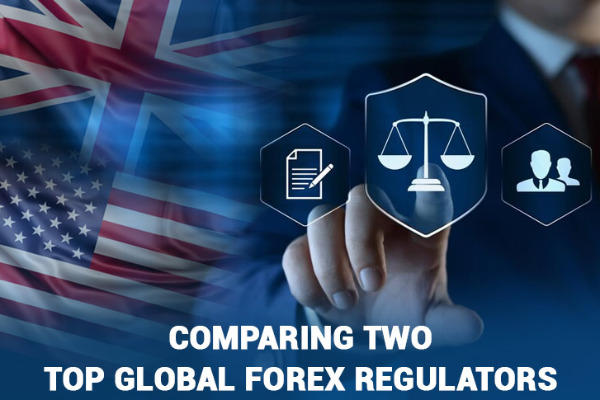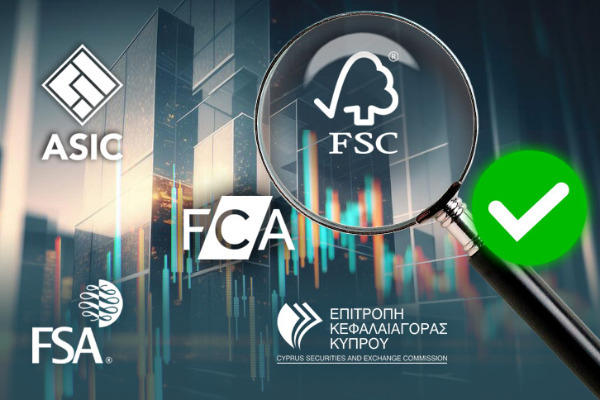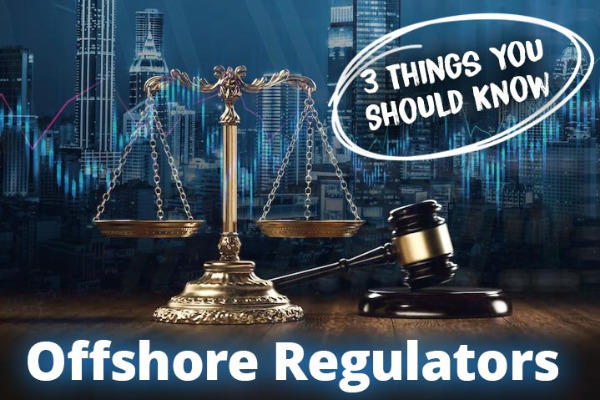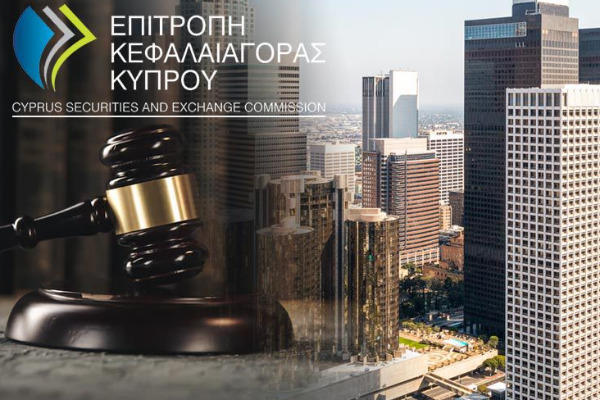If you're a trader from the US, you may wonder why many forex brokers operate globally but refuse to accept US clients. Find out the answer in this article.
One of the biggest attractions of the forex market is that it opens 24 hours, 5 days a week, and it is accessible from anywhere in the world. Thanks to the speedy internet and advanced technology, the currency market is now more connected than ever and has become inclusive to any type of trader from all around the world. As the market continues to grow, many platforms have been developed to facilitate smooth and fast trading processes, providing a better experience for clients.
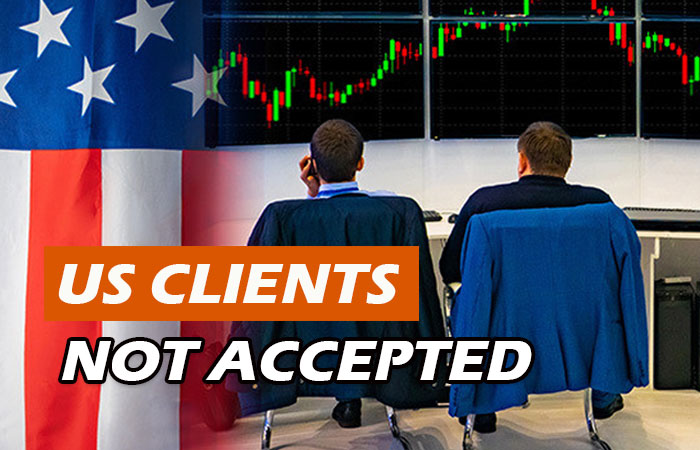
There are several centers in many countries where most trades take place. One of those centers is in the United States. As a well-known and highly reputable financial center, it plays an important role in many aspects. When it comes to the forex industry, the US also holds a vital position by having a powerful financial system and a huge market for various goods and services.
Yet, if we take a closer look, there aren't many global forex brokers that accept US clients. If you happen to be a US citizen, you may wonder why there are many trustworthy brokers that seem to be operating everywhere but in the states. We have compiled some explanations regarding the reason why many forex brokers prefer to not accept US clients.
Is Forex Trading Legal in the US?
First off, many new traders may have made assumptions that forex trading in the US is illegal. If you search it up on the internet, you may find many conflicting messages on various websites regarding the legal status of forex trading in the US. The truth is, forex trading is actually legal in the US and you can legally trade within the states.
Under the current US law, the Commodities and Futures Trading Commissions (CFTC) has no authority to prohibit any trader from the US to enter the forex market. They can trade as easily as someone who lives in Australia or Japan. There are, however, some key differing factors if we compare it with other areas in the world that limit the options of forex brokers for US traders.
See Also:
1. Strict Regulations
The main reason why many forex brokers have decided to decline US clients is the strict regulation of the authority. If we take a look at the regulation for forex brokers to operate in Europe, the requirements are rather easy to fulfill. The broker simply has to obtain a legal license from at least one of the European regulators and once it's done, they can start operating and accept clients from all around the area. So that being said, obtaining a license from the UK's Financial Conduct Authority (FCA) is all it takes for a broker to accept clients from Bulgaria, Hungary, and other EU member States.
In comparison, a broker that wishes to operate in the US must fulfill several requirements in the US regulation. The regulations are basically based on the Dodd-Frank Wall Street Reform and Consumer Protection Act that was passed in 2010 as a response to the 2008 financial crisis. The law aims to create a safe financial system among US citizens and prevent any turmoil from happening. But while the legislation has done a great job in ensuring the safety of the citizens and provided a safer environment for trading, it also contributes some negative impacts to the forex industry in the US.
For a starter, every broker who wants to enter the US market must be regulated by the National Futures Association (NFA). So even if the broker already has licenses from top-tier global regulators such as the FCA or ASIC (Australia), they are still obligated to get another license from the NFA.
Now you may wonder, if the broker could get all of those licenses, then what's stopping them from getting another one? Well, the answer is quite simple: capital requirements. Consequently, by getting a license from the NFA, the broker also has to comply with the rules, which turn out to be quite costly.
In Europe, a broker must have at least $100,000 - $500,000 of locked capital to get a license. While in the US, the NFA requires each broker to have at least 20 million dollars to operate within the country. As you can tell, the gap is huge.
But It doesn't stop there because this amount of money only accounted for the deposit that a broker has to make and still does not include any legal fees for getting the license and the employment of lawyers to be placed on the register and executives. Needless to say, it is expensive. Although some brokers may be big enough to afford such fees, it is still considered costly for a single license. That is why most brokers decided to stop accepting US clients rather than having to provide such huge fees in doing so.
See Also:
2. Profitability
Another important factor that makes many brokers ban US clients is profitability. While it's true that there are many big brokers who can afford the 20 million dollars required to operate, but not all of them would find it to be profitable or significant enough for their business. The basic understanding of forex trading is that forex brokers earn on how much volume is traded on the market. So the higher the trader's volume, the more profit a broker makes.
Now if we take a look at the US market, it is actually one of the most prosperous markets in the world. However, due to the country's regulations, the broker only gets to supply 50:1 leverage on majors and 20:1 on minors. Such low leverage also limits the capability of traders, thus limits the broker's profit as well. In addition, wages in the US are relatively higher than in other countries. So now we can see that the whole operation process in the US is definitely expensive and probably not worth it, even for giant global brokers.
3. Regulator Issues
Despite the fact that entering the US region is costly for forex brokers, conflicts can also occur because of the regulator's attitude, which historically seen as a hindrance. Apart from financial requirements, the NFA also imposes special rules regarding trading strategies.
In Europe, forex brokers are allowed to offer their clients almost any trading strategies they desire. But in the US, the NFA and CFTC prohibit the use of certain trading strategies such as hedging. The First In First Out (FIFO) rule basically means that traders have to close a trade position before they get to open a new position in the same currency pair, hence prohibit the act of hedging.
Such strict regulations resulted in many cases where forex brokers are heavily fined by the NFA for malpractice. Some of these cases are not even that significant to begin with, but even so, the broker is still charged with heavy fines ranging from $200,000 to $2 million. So not only does it hard to enter the market in the first place, but once they're in, it's possible to lose the year's profit to the regulator as a result of certain misconducts.
4. Indirect Rivalry
It's well-known that the US market is more familiar with trading stocks, so they often choose to invest in shares over currencies. Typically, trading stocks is more expensive for traders and therefore more profitable for the brokers than forex trading. As a result, it becomes even more challenging for forex brokers to gain profit in the US market.
In the stock-dominated market, forex brokers don't only compete with each other, but they also have to fight their way to increase awareness about online currency trading in the country and encourage traders to trade forex instead of stocks.
Conclusion
To summarize the article, we can see that there are indeed some good reasons why most forex brokers refuse to accept US clients. The heavily regulated environment combined with expensive cost and limited leverage undoubtedly left brokers with very limited choices. In the end, those requirements don't seem worth it to fight for.
Fairly speaking, there are a few unregulated brokers offering their services in the US. They can offer many attractive services such as high leverage and quick registration simply because they are not obliged to follow the rules imposed by the regulator, so their legal and operation costs are way cheaper than regulated brokers. But even so, we wouldn't recommend you to register in these unregulated brokers because it isn't safe. After all, the country's heavy regulations were made mainly to protect the customer's safety and maintain the market's balance, so it's best to stay on the right track and always trade legally.

 Dedicated FREE FOREX VPS
Dedicated FREE FOREX VPS Free FOREX Virtual Private Server
Free FOREX Virtual Private Server MT4 Demo Contest, Get $500
MT4 Demo Contest, Get $500 Sign Up for an Account, Claim 60% Deposit Bonus
Sign Up for an Account, Claim 60% Deposit Bonus Free MT4/MT5 VPS 2024
Free MT4/MT5 VPS 2024 Send E-mail and Get Free Merchandise
Send E-mail and Get Free Merchandise $1K Refer a Friend Bonus for Pepperstone Pro clients
$1K Refer a Friend Bonus for Pepperstone Pro clients Maximize Your Earnings with 100% Deposit bonus
Maximize Your Earnings with 100% Deposit bonus Trade to Win, $5,000 Monthly Demo Contest
Trade to Win, $5,000 Monthly Demo Contest Claim 30% + 15% Deposit Bonus from LiteFinance
Claim 30% + 15% Deposit Bonus from LiteFinance

